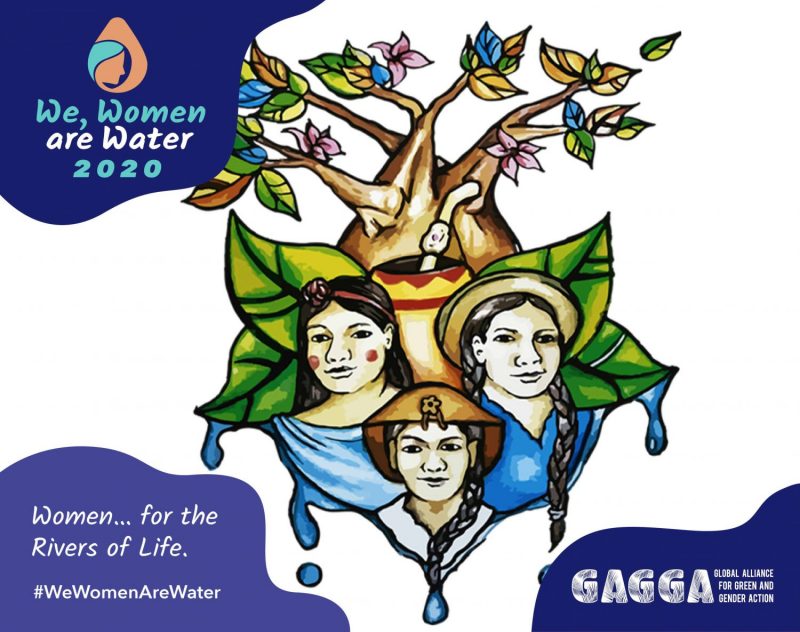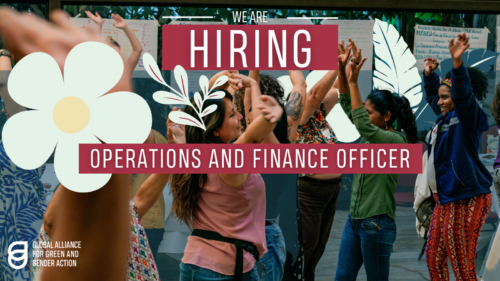We, Women are Water 2020: Women for the Rivers of Life

Villa Montes, located in El Chaco, Bolivia, is an area known for oil and gas production, an industry that has had many costs and consequences for natural ecosystems. In particular one of the main tributaries of the great Pilcomayo River, which flows across the El Chaco plains and into Paraguay, has been contaminated by mining activity.
The Chaco region is characterized by prolonged periods of drought and water scarcity. In this context, the life and health of indigenous and rural peoples living in the area, as well as their livelihoods (fishing and agricultural production) are at serious risk.
Concerned by the ways that water contamination and scarcity disproportionately affects them as women, “campesina” rural working women, indigenous women and women from urban working-class neighborhoods have come together and organized to prepare a proposal for a municipal law. The proposed law establishes the protection and conservation of water sources, and access to good quality water in sufficient quantities. Their proposal was put to the authorities of the Municipal Council of Villa Montes during a public event requesting approval of the law, and requesting that the authorities take up public actions to ensure its fulfillment, within the framework of women’s human and environmental rights.
They seek to influence local, regional and national authorities to take steps to guarantee the human right to water, as recognized in the Constitution of Bolivia. The demands that the women of the municipality of Villas Montes put to the authorities are to:
- Regulate and ensure compliance with the municipal law guaranteeing protection, care and conservation of water sources.
- Implement policies to democratize access to water, especially in indigenous and rural communities.
- Regulate the hydrocarbon extraction industry in the region to reduce its impacts on the environment and affected families.
- Regulate mining activity, its effects and consequences in the Pilcomayo river basin.
- Promote women’s human rights and environmental rights.
Finally, the women demand of the oil and gas companies that they fulfill their environmental and social responsibilities in order to curb the damage caused in the region.
Copyright © 2020 GAGGA. Image may not be copied, printed, edited or otherwise disseminated for commercial use without express written permission of GAGGA. The use of this image in its original form is otherwise allowed if credit is provided to GAGGA.

We Are Hiring: Operations and Finance Officer!
DEADLINE EXTENDED! Are you passionate about ensuring efficient financial management and operational excellence to support transformative work in climate, environmental,…

We Are Hiring: Donor Engagement Officer!
DEADLINE EXTENDED! Are you passionate about cultivating relationships and securing funding to support transformative work in climate, environmental, and gender…

Welcoming Anamika Dutt As GAGGA’s Planning, Monitoring, Evaluation & Learning (PMEL) Officer!
Anamika Dutt is a feminist MEL practitioner from India. Anamika believes that stories of change and impact are best heard…
Subscribe to our newsletter
Sign up and keep up to date with our network's collective fight for a gender and environmentally just world.
